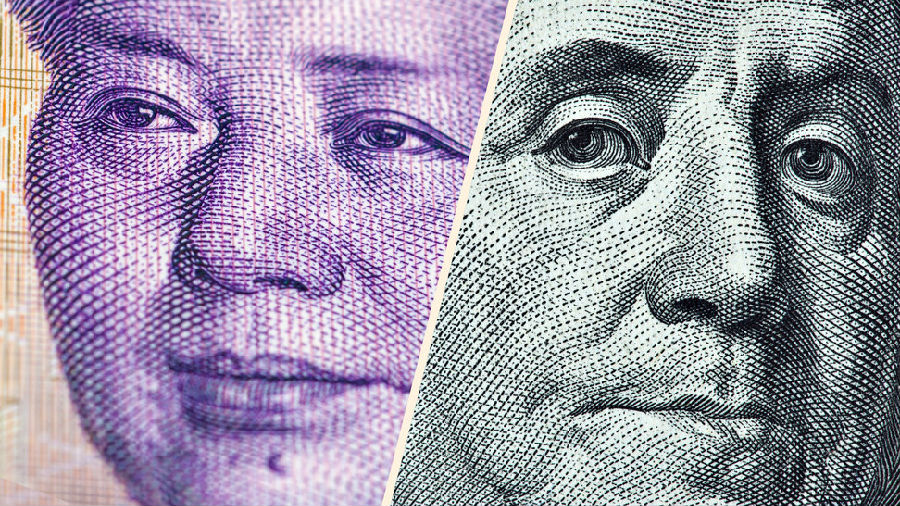(单词翻译:单击)
China’s investment around the world is an important and developing phenomenon. But both its successes and its setbacks are being overstated. This risks warping business and policy decision-making. In particular, there is no sign at the global level of greater hostility in host countries toward Chinese companies.
中国在世界各地的投资是一个重要的“发展中”现象,但其成功和挫折都被夸大了,以致有扭曲商业和政策决策之虞。更何况,在全球层面上并没有迹象表明东道国对中国企业敌意增加。
The problem starts with the definition of success. Sources offer 2016 figures as high as $247bn for the PRC’s overseas deals in 2016. But the indicator used is closer to “circulated acquisition ideas” than “deals.”
第一个问题是关于成功交易的定义。据若干数据来源,2016年中国海外并购交易额高达2470亿美元。但它们所用的指标更接近于“流传的收购意向”,而不是“交易”。

The American Enterprise Institute’s China Global Investment Tracker and China’s Ministry of Commerce agree on a first estimate of $170bn for outbound investment. While the $170bn results could be revised upward, they also include greenfield investment. Total investment rose sharply in 2016. It certainly did not double over 2015, as some claim.
美国企业研究所(American Enterprise Institute)编制的“中国全球投资跟踪”(China Global Investment Tracker),以及中国商务部都同意一个初步估计,即2016年中国对外投资为1700亿美元。虽然这一数值可能被上修,但其中还包括了“绿地投资”(greenfield investment)。2016年总投资额出现大幅上升,但据某些人表示,肯定达不到2015年的两倍。
If the 2016 baseline is wrong, it will yield an inaccurate view of 2017. A $200bn figure for verifiable Chinese investment in 2017 would be a further increase, not a surprising decline. Numbers along the lines of $250bn just for 2016 acquisitions are not useful for comparison.
如果2016年数据是错误的,以其作为基准进行比较,将导致对2017年形势的误读。2017年中国可证实的投资假如达到2000亿美元,那就是有所增加,而不是意外下降。2016年海外收购在2500亿美元左右这样的数据并无比较价值。
Directly connected to the overstatement of successful investment is the overstatement of failed investment. If transactions that are merely proposed are added in, the value of “failed” transactions will inevitably soar, given the likelihood of failure at the proposal stage is high.
对成功投资的夸大,与对失败投资的夸大直接相关。如果拟议的交易也计算在内,“失败”交易的数额必然大增,因为提议阶段的交易失败的可能性很高。
The biggest example of a purported deal that is neither investment nor failure is Tsinghua Unigroup’s fake $23bn bid for Micron. Tsinghua pretending it had the money and was soon to submit a proper bid was not anything close to an acquisition. Even worse would be counting it as a meaningful failure — it was much closer to farce.
既不算投资、也算不上失败投资的最大一笔传闻交易就是紫光集团(Tsinghua Unigroup)230亿美元假收购美光科技(Micron Technology)。紫光集团假装自己有这笔资金,并迅速提交合理报价,但该交易连收购的边都沾不上。更糟糕的是将它当做一次有意义的失败,其实它更接近于闹剧。
As such, it can hardly qualify as being blocked by American political opposition. In fact, host country opposition accounted for only a minor part of China’s 2016 investment problems.
因此,这笔交易不能算作受阻于美国政界的反对。事实上,在中国2016年的投资问题中,东道国的反对只占了很小一部分。
An illustration here is Anbang’s $14bn attempt to buy Starwood early last year. Anbang seemed to give up because it did not want to compete with Marriott, though more likely Anbang did not have the funds and could not get them from state-owned Chinese banks. Neither popular nor government opposition in the US was a factor.
以去年初安邦(Anbang)提出以140亿美元收购喜达屋(Starwood)为例。安邦之所以放弃,似乎是因为不想与万豪(Marriott)竞争,但更可能是安邦缺乏资金,且无法从中国国有银行获得融资。其原因不包括美国民众或政府的反对。
The result was due to a conventional commercial judgment, an error by the company, or reluctance by the Chinese state. Measuring deals lost to conventional commercial developments has no purpose — there are no business or policy implications of such outcomes. Tallying these transactions just generates a larger figure, conflating real issues with normal business.
这起收购案的失败原因可归结于常规商业判断、企业失误或中国政府不同意。因为常规商业发展而失败的交易没有计算的意义——这种结果不具有商业或政策上的含义。统计这些交易只是生成了一个更大的数字,从而与正常业务的真实问题混为一谈。
Host country opposition, errors by Chinese firms and Chinese government opposition are all included in a set of “troubled” transactions in the American Enterprise Institute data set. The goals in collecting this data are to include only legitimate transactions and exclude conventional business issues as reasons for failure or impairment.
东道国的反对、中国企业的错误和中国政府的反对,都包含在美国企业研究所数据库里一组叫做“问题”交易的数据中。收集这些数据的目的是只筛选真实的交易,剔除掉因常规商业问题导致的失败或受挫交易。
There are almost surely some mistakes in the list. Nonetheless, it involves a consistent methodology and includes slightly over 200 transactions worth more than $300bn. It starts with the politically driven collapse of China National Offshore Oil’s $18bn bid for Unocal in 2005, a collapse that actually signalled the start of large-scale Chinese outbound investment.
几乎可以肯定这组数据中存在一些错误。尽管如此,但它用的是一种一以贯之的方法,其中包括了略多于200笔交易,交易总值超过3000亿美元。第一笔“问题”交易是2005年中国海洋石油有限公司(China National Offshore Oil Corp,简称中海油)以180亿美元竞购优尼科(Unocal)失败,属于受政治因素影响的失败交易。实际上,那次收购失败标志着中国大规模海外投资的开始。
Chinese companies struggled most with their investments in 2008 and 2009. This is not surprising given the world economic situation and the inexperience of Chinese investors, such as Ping An, at the time. The initial set of investors, mostly commodities firms, is far more sophisticated now.
2008年和2009年是中国企业投资最受挫的时期。考虑到当时世界经济的状况以及平安保险(Ping An)等中国投资者缺乏经验的情况,这并不奇怪。最初的那批投资者——主要是大宗商品公司——如今变得老练多了。
In 2016, the inexperience lies with a new batch of privately owned Chinese investors. For last year, the “troubled” list currently shows 25 troubled transactions worth more than $31bn, about the same as 2015. The 2016 figure will rise, because some transactions are impaired over time in the form of long-term delays or belatedly being curtailed.
2016年,缺乏经验的情况出现在一批新的中国私营投资者身上。2016年“问题“列表目前显示有25笔、总值超过310亿美元的问题交易,与2015年的数字基本一致。2016年的数字将有所增加,因为随着时间推移,一些交易会以被长期拖延或者拖了很久终于被缩小规模的形式受挫。
Even if the 2016 troubled figure ultimately rises all the way to $45bn, though, this increase will only mirror the 2016 increase in successful investment. It will not signal new hostility toward Chinese spending overseas. In contrast, it was striking how little opposition last year’s investment surge generated, at least initially.
即使2016年问题交易额最终一直增加至450亿美元,其增长也只能映衬2016年成功投资的增长,而不能表明中国海外投资遭遇新一波敌意。倒是去年(至少在最初阶段)中国海外投资飙升所遭遇的反对如此之少令人惊讶。
Much attention has been paid to the Committee on Foreign Investment in the United States. On the AEI count over $4bn worth of blocked or downsised transactions in 2016 is attributable to CFIUS. This may seem substantial, but the AEI figure for Chinese investment in the US last year exceeds $50bn (from $19bn in 2015).
人们非常关注美国外国投资委员会(Committee on Foreign Investment)。根据美国企业研究所的统计,2016年由该委员会造成的受到阻拦或缩小规模的交易总值超过40亿美元。这看起来或许是一个很大的数字,但美国企业研究所估算,去年中国在美投资总额超过了500亿美元(2015年仅为190亿美元)。
China’s global investment may decline this year. The proper basis to determine that is not intended transactions but those in progress or completed. Moreover, it is Beijing’s concerns about capital flight that are likely to cause any decline. There is no sign of greater foreign hostility to Chinese money or an extraordinary amount of investor mistakes.
今年中国的全球投资规模可能出现下滑。能确定这一点的比较基数不是意向交易,而是那些正在推进或已经完成的交易。而且,如果真的下滑,北京方面对资本外逃的担忧可能是造成下滑的原因。目前没有迹象显示外国对中国资本敌意增加或存在大量的投资者错误。
Derek Scissors is a resident scholar at the American Enterprise Institute, a US public policy think-tank
本文作者为美国公共政策智库——美国企业研究所(American Enterprise Institute)常驻学者


